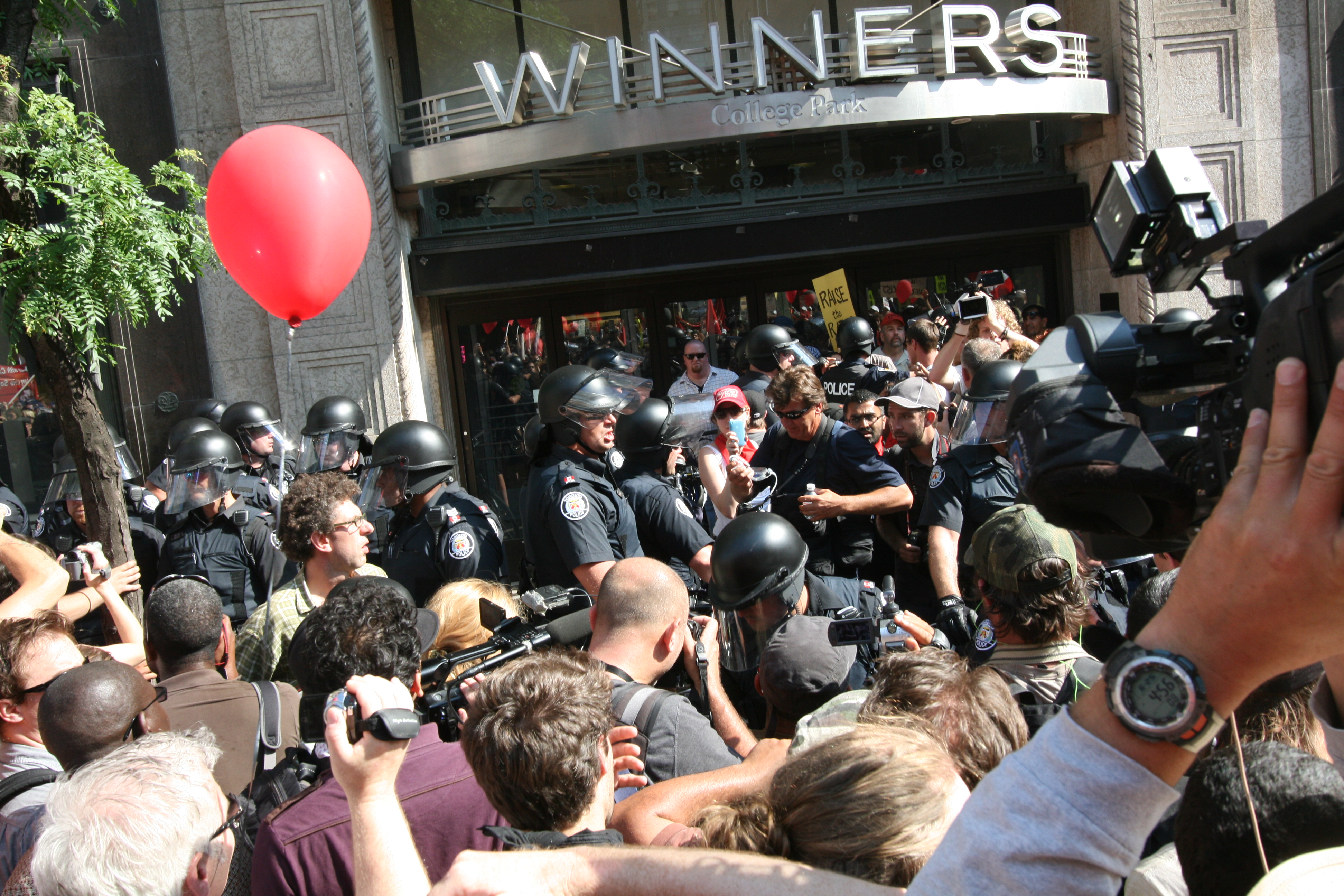Moving one step closer in the bureaucratic process of conducting a police-led G20 inquiry into police behaviour, the Toronto Police Service released some information regarding how it will hold its own police inquiry into the police. [Hey fox, don’t take your eyes off the henhouse!]
The review will be carried out by a former judge, to be publicly named September 23, 2010, and who will tackle troubling questions such as what orders were given that led to the arrest of more than 1,000 people and the “kettling” of peaceful protesters.
“This review . . . will help us understand not only what didn’t work but what worked,” said chair Alok Mukherjee, moments before the board approved the six-page terms of reference, outlining key areas to be addressed. Among the subjects to be reviewed:
–Why did police disperse demonstrators from their designated area at Queen’s Park and detain protesters on the Esplanade?
–Why did police use a tactic known as “kettling,” in which protesters were corralled into a tight, enclosed space without access to food, water or bathrooms?
–What orders were given by Toronto police in response to the destruction of cruisers and damage of property in the financial district, and along Queen Street and Yonge Street?
–What orders were given by police about using tear gas to disperse people outside the prisoner detention centre on Eastern Avenue?
–Did officers remove or cover their name badges or badge numbers?
You can read the Toronto Police Service’s draft terms of reference for its inquiry here.
John Sewell, of the Toronto Police Accountability Coalition, is critical of the police’s plan to police itself and stated, “A full public inquiry is what is needed with powers of subpoena and the calling of evidence from all parties, including other police forces involved,”
*
The Canadian Civil Liberties Association has been critical of the G20 police’s action during the G20 Summit weekend and supports a full, public inquiry.
“It is CCLA’s opinion that Canadians deserve to know why the security apparatus failed to adequately fulfill its role to protect the public’s freedom of expression and assembly, in addition to ensuring the safety of G20 delegates.
“The Canadian Civil Liberties Association has been actively involved in ensuring accountability in policing and governance before, during, and especially after the G20 summit.” You can read its reports here.



